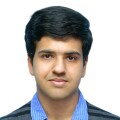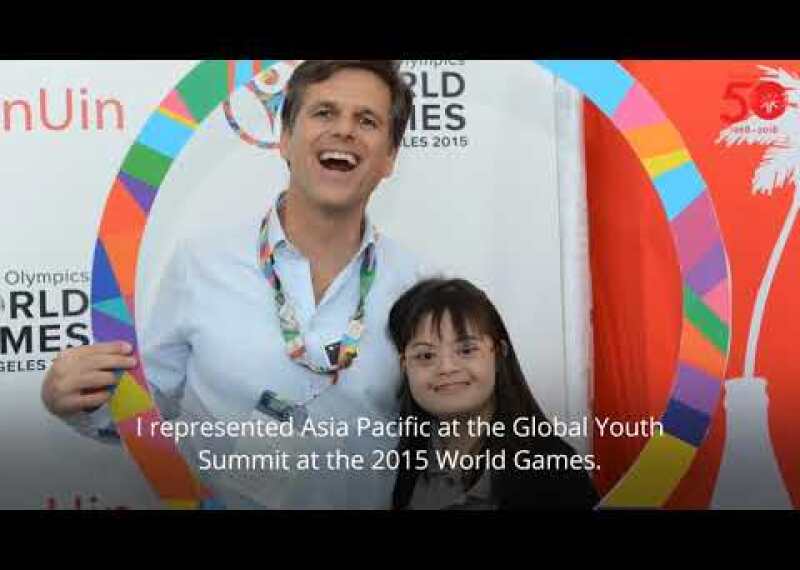I was born a healthy baby, and my early developments were considered normal. However, as I grew older, my parents found it increasingly difficult to deal with my eccentric behaviors. Before the age of eight, I was nonverbal, and I did not respond when called. I often kept my toy cars at eye level on a table, turning the wheels repeatedly and becoming very distressed if the wheels ever got stuck.
In the regular school I attended then, I always wanted to sit alone and would avoid eye contact with everyone. My school teachers were very supportive, but I was struggling every day as I was unable to communicate. I started having more meltdowns.
It took a while for my parents to accept the fact that I had created my own world within their world, and that they were no longer a part of it.

At the age of 12, with the help of my aunt, I was clinically diagnosed with autism, a condition that affects my ability to communicate, reason, and interact with others. It was then that my mother enrolled me in a special school where I managed to pass my secondary school examinations and eventually secured a scholarship for myself.
Under the guidance of a Special Olympics coach in Pakistan, I was introduced to the world of sports. Special Olympics Pakistan accepted me the way I was and gave me a voice to speak for myself. During my first event, our sports director trusted me with a microphone to introduce myself to my fellow athletes. After that day, I looked forward to every chance I had to hold a microphone and speak my mind in my own words. Special Olympics not only equipped me with the ability to compete as an athlete, but also gave me the confidence to share my joy and feelings with everyone.
In 2013, I was selected to compete in the Special Olympics Asia Pacific Regional Games held in Australia. Before I left, my father was diagnosed with cancer, and had to remove his vocal chords. He could no longer speak, and that made him very depressed. To cheer him up, I promised to do my best for the Games. I am proud of myself for keeping to my promise and he was very proud of the two gold medals I won on the track.

After my victory on the track, I decided to pick up road cycling. When I first started cycling, I could not even sustain half a kilometer on the bike. When training gets tough, my cycling companions will always encourage me by reminding me to “keep on peddling, keep on peddling!” My goals are bigger now—I train regularly with the help of professional coaches and can even cover 30km within an hour. Cycling offers me a magical combination of independence, individual challenge, and social contact.
More importantly, my achievements in sports gave my parents a sense of accomplishment, proving to them that I can succeed in anything I put my mind to, if they give me the support I need.
Their support has enabled me to make it, when I was 17, to the TEDx stage, where I shared my story with the world. I also recently published a book chronicling stories of people with intellectual disabilities, and I have been visiting schools across Pakistan to share these stories. Most recently, I was lucky to be one of 10 Special Olympics athletes to be selected as an International Global Messenger for the movement, to spread the message and vision of inclusion around the world.
Currently, I am in the midst of completing my diploma in special education. I’m fortunate to grow up in an accepting environment, surrounded by people who love me unconditionally. But many out there are not as lucky as I am. For many of us, the biggest barrier in our life is not our disabilities, but the social stigma that society presents. Cultural norms are the hindrances to an inclusive society. Many families of children with intellectual disabilities often believe that they have been cursed and punished. Thus, instead of sending us to special education schools, they keep us away from the world.
People sympathise with us but are unwilling to accept us as members of the same society.
If you meet any person with intellectual disabilities, don’t pity us, but be accepting and understanding. Like all individuals, we aspire to lead a life with respect and dignity, and to be entitled to a broad range of life activities, including quality education, inclusive schooling systems, accessible spaces and the right to employment. Help us become part of your world so we can speak up and realize our dreams—so that we can thrive, and not just survive.
I was shocked for a while because it’s a difficult thing to comprehend, that all of sudden I now have a disability. For a while I felt isolated as I struggled to grasp it.
Read more at http://humanrace.asia.









